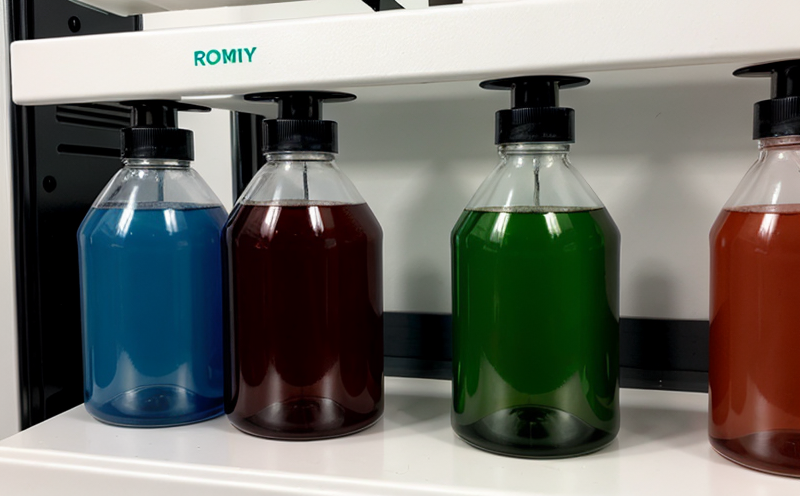ASTM D3418 DSC Reactivity Testing of Polymers
The ASTM D3418 Differential Scanning Calorimetry (DSC) reactivity test is a critical tool used to assess the thermal stability and reactivity of polymers. This method helps in understanding how polymer samples behave under various temperatures, providing insights into their potential for exothermic reactions or decomposition.
During ASTM D3418 testing, the sample is heated incrementally while comparing it with a reference material. The difference in heat flow between these materials is recorded as a function of temperature. This data helps determine the onset of melting, crystallization, and other phase transitions, which are indicative of the polymer's reactivity.
Understanding the reactivity of polymers is essential for optimizing processing conditions, ensuring product safety, and predicting end-of-life behavior. For instance, in the production of plastics or composites, knowing the exact temperature at which a polymer starts to react can prevent overheating during manufacturing processes, leading to improved quality control.
The test also aids in identifying potential hazards associated with storage temperatures for reactive materials. This is particularly important in industries like pharmaceuticals, where prolonged exposure to incorrect temperatures could compromise product integrity or stability.
ASTM D3418 testing is not just limited to laboratory settings; it has real-world applications across various sectors including automotive, aerospace, and electronics. By ensuring that polymers meet specific reactivity thresholds, manufacturers can enhance the durability and performance of their products.
The test procedure involves precise specimen preparation. Typically, a small amount of polymer is encapsulated in an aluminum pan to prevent contamination during heating cycles. The sample must be homogenized to ensure uniformity across all measurements, which is crucial for accurate results.
Instrumentation used in ASTM D3418 testing includes a differential scanning calorimeter equipped with appropriate software for data analysis. This equipment allows researchers and engineers to visualize the thermal behavior of polymers comprehensively. Advanced features such as real-time monitoring and automated reporting enhance efficiency and reliability.
Applied Standards
The ASTM D3418 test is primarily referenced in standards like ISO 11357, which provides guidelines for the use of DSC in material characterization. Compliance with these standards ensures that tests are conducted uniformly across different facilities worldwide.
- ASTM D3418: This standard specifies the procedure for determining thermal properties using differential scanning calorimetry, focusing particularly on reactivity and decomposition temperatures.
- ISO 11357-2: This part of ISO standards covers the use of DSC for polymer characterization, providing additional context to ASTM D3418.
The application of these international standards ensures consistency and reliability in testing results. Compliance with such norms is crucial for industries that require stringent quality control measures.
Eurolab Advantages
At Eurolab, we pride ourselves on delivering high-quality, accurate ASTM D3418 testing services. Our state-of-the-art facilities and experienced technicians ensure that each test is conducted according to the highest scientific standards.
- Precision and Reliability: With advanced equipment and meticulous attention to detail, we provide precise results every time.
- Comprehensive Reporting: Our reports are detailed and easy to understand, offering comprehensive insights into the thermal behavior of your polymer samples.
- Expertise and Experience: Our team comprises highly skilled professionals with extensive experience in polymer testing, ensuring accurate interpretation of results.
We also offer quick turnaround times without compromising on quality. This makes us the ideal partner for businesses that need timely, reliable data to support their research and development processes.
Environmental and Sustainability Contributions
The ASTM D3418 testing helps in understanding how polymers behave under various temperatures, which is crucial for environmental sustainability. By preventing premature degradation or exothermic reactions, industries can adopt more sustainable practices.
- Reduced Waste: Understanding the reactivity of polymers allows manufacturers to optimize processing conditions, reducing waste and minimizing environmental impact. Energy Efficiency: Properly designed polymer products have longer lifespans, leading to reduced resource consumption and energy use over their lifecycle.
Through accurate testing, we contribute significantly to sustainable practices in various sectors. Ensuring that polymers are used efficiently helps in creating a greener future.





